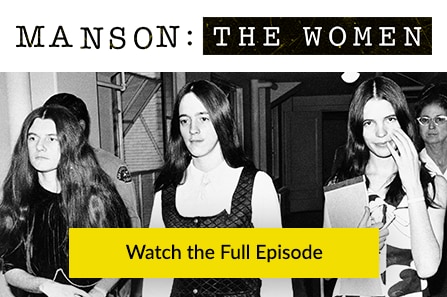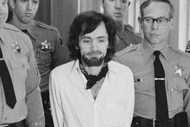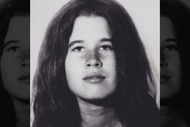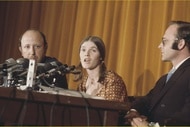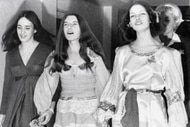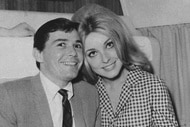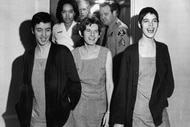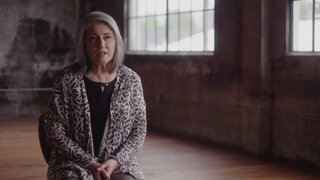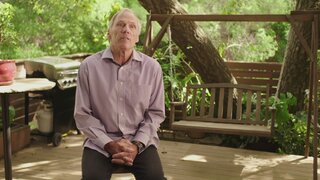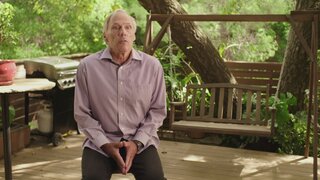Create a free profile to get unlimited access to exclusive videos, breaking news, sweepstakes, and more!
‘Charlie Never Pretended Anyone Was The One And Only’ How Manson Cultivated Relationships With Several Women
Charlie Manson seduced many of his female followers by targeting those who were “hungry for a connection” and becoming exactly what each woman had been looking for.
One woman was never enough for Charlie Manson. The enigmatic cult leader openly cultivated sexual relationships with multiple women at the same time—even later convincing some of his female followers and lovers to kill for him.
But just how was Manson able to get so many young women to fall under his spell?
“Charlie never pretended that, you know, anybody was the one and only,” Lynette “Squeaky” Fromme told producers of “Manson: The Women,” a documentary special on Oxygen. “Some people thought he played favorites, but I don’t think so. He had a different relationship with each of the women and he was honest about it.”
Although Manson took advantage of the free-love culture many young people embraced in the late 1960s—those who’ve studied Manson believe he also employed a series of tactics aimed at manipulating his female followers and found ways to make each feel loved and understood.
“These young women were searching for love,” Lis Wiehl, author of “Hunting Charles Manson: The Quest for Justice in the Days of Helter Skelter” said in Oxygen’s upcoming special. “Charlie was dynamic and charismatic and he would play the guitar and he sang and it was in that culture where these young women were searching for love.”
Nikki Meredith, author of “The Manson Women and Me: Monsters, Morality and Murder,” told producers that Manson specifically targeted women who were “hungry for a connection” and was quickly able to hone in on each woman’s greatest insecurities.
“He had the ability to pay attention, which picked up strengths, but most important, vulnerabilities and he knew how to manipulate that,” she said in the special.
Powerfully-Charged First Meetings
Many of the women who traveled with Manson—and ultimately became what the media later referred to as part of the “Manson Family”—described Manson’s uncanny ability to connect on a deeply personal level during their first meetings.
Fromme told producers she was alone on Venice beach when Manson first approached her, just shortly after her father had kicked her out of her home.
“He didn’t see me until he got close enough and then he said, ‘so, your father kicked you out?’ and it was amazing to me,” she said.
She described him as “very interested” and “animated” during their encounter, eventually asking whether she wanted to join him and the other women he was traveling with.
Sandra Good, known to the group as “Blue,” described a similar encounter with Manson. Good came from an upper middle-class family but was plagued by respiratory problems as a child—needing to have two tracheotomies by the time she was just one-year-old.
“My mother did not want me to survive the many operations I had,” she told producers.
Manson was quickly able to hone in on her earlier health problems during their first encounter. Good told Oxygen Manson traced her tracheotomy scar with his finger and then told her, “Your mother wanted you dead, because she was jealous.”
He told her she was not weak and gave her the affirmation she had been looking for.
“His brilliance was permeating my whole being. My mind was pretty much blown just by his voice, by his demeanor, by the happiness and the brightness,” she said.
Dianne Lake, also known as “Snake” admits she was “totally looking for acceptance” when she met Manson at the age of 14. Just the year before, her parents had made the decision to “drop out” of society, ultimately ending up living at a commune known as the Hog Farm. Lake, a sexually active minor at the time, said she never felt welcome at the commune in part because the group’s leaders were concerned that she may attract the attention of authorities. Her parents agreed to sign papers giving the young teen emancipation and she soon found herself on her own.
“Everywhere she turned, she was being devalued,” said Deborah Herman who co-wrote the book “Member of the Family: My Story of Charles Manson, Life Inside His Cult, and the Darkness That Ended the Sixties” with Lake.
Mason told Lake she was amazing and special and wanted—something she wasn’t hearing from others around her at the time.
“He wound find the vulnerability in each of the women that he gathered, and he would become that,” Herman said.
Catherine Share, known as “Gypsy,” told producers that Manson was always “very accepting” and kind and often gave her his full attention when they were together.
“His mind wasn’t anywhere else,” she said.
Early Intimacy
Many of the women also reported sleeping with Manson either the first night they met him or shortly after crossing paths with the famed cult leader.
Lake—who was just 14 at the time—had sex with a 34-year-old Manson the first night the two met. Lake said he made love to her like she’d never experienced before, making her feel like a woman.
“It was the most magical (intimacy) that I had ever encountered,” she said.
Meredith believes he used this sexual intimacy with his female followers to his advantage.
“He used his sexuality as a way of increasing dependence on him,” she said.
The Appeal Of Life Outside Of Society
Many of the women were also seduced by the free-love, happy lifestyle Manson promoted on Spahn Ranch, where the group often stayed.
“I was truthful and honest with them and society’s not truthful and honest. They don’t want no truth,” Manson said in a 1977 prison interview from Vacaville State Prison that aired in the special.
Fromme said the women each embraced their own unique talents to find ways to contribute at Spahn Ranch, whether it was cooking, sewing or taking care of the children.
“Together, we made up this can do, very strong and harmonious woman,” she said.
Lake said she doesn’t remember any competition among the women—although she did want Manson to “love only me and marry me.”
She attributed that to Manson’s distinct ability to make each woman feel like “his special one,” which she now believes was just a manipulation tactic.
Later Violence And Manipulation
While Manson often initially plied the women with love and acceptance during their early days with the group—many of his female followers also report that the cult leader later used violence to maintain his control over the women.
Share told a Los Angeles Superior Court judge in 2017 that Manson once beat her and told another man in the group that if she ever tried to flee the family that he should hunt her down and drag her behind a car, according to the Associated Press.
"Some people could not leave. I was one of them that could not leave," she said while testifying in a parole hearing on behalf of fellow member Leslie Van Houten. "I don't think (Van Houten) felt like she was free to leave."
Share told “Manson: The Women” producers that the beating began because she had taken a phone call and forgot to pass on the message.
“That was like just such a shock to me, because someone that I thought really loved me, you know, just beat me up when I was pregnant,” she said.
Lake also told producers Manson once raped and sodomized her in a violent encounter between the pair before telling her “That’s the way we do it in prison.”
“It was just really ugly,” she recalled. “It was a really ugly side of him.”
But while some have recounted violence at the hands of Manson, Fromme said she never saw Manson being abusive with the women on the ranch.
Some say Manson also used drugs and isolation to increase the women’s dependence on him over time.
Many of the women even shed their former names—adopting nicknames given to them by Manson or ranch owner George Spahn.
“Charlie would give you a name,” Wiehl said. “You had to give up your family and all your personal belongings. You had to give that to the family and by giving up yourself, of course, you were giving to Charlie.”
Over time, Wiehl said, Manson held all the power.
“By taking power away from the women and giving it to himself, you know, Charlie held all the cards. So, when it came time for him to want something from them, whether it was sex to give to the other men, to lure men to his commune, or the cult, he could do that. And then when it came to asking them to kill, apparently, they were willing to do that as well,” she said.
Share said one of Manson’s most powerful manipulation tactics was that he rarely ever told anyone else what to do directly but had a way of bringing up things and asking questions that ultimately gave him control over what went on at the ranch.
“It wasn’t as if he was telling people what to do and being bossy and commanding. He’d ask questions like, ‘What do you think about this? Should we do this?’ He’d bring you into it. Should we do this? And then, if you agree, then, you were like giving your word,” she said.
It was a subtle tactic that worked well on many of his followers.
“He was manipulating in a way that no one knew he was manipulating,” she said.
Even after Manson and followers Charles “Tex” Watson, Leslie Van Houten, Susan Atkins and Patricia Krenwinkel were arrested for the brutal murders of pregnant actress Sharon Tate, three of her houseguests and the slaying of Leno and Rosemary LaBianca, many of the women continued to support Manson, even shaving their heads and carving x’s into their foreheads in support of their leader.
Manson’s powerful pull was even evident to former Los Angeles County prosecutor Steven Kay, who helped prosecute the case alongside Vincent Bugliosi.
“He had a very powerful personality,” he told “Manson: The Women.” “When he would walk in the room, you could almost feel the electricity pouring off of him.”
Over the last 50 years, many of the women have now denounced Manson, but a select few, including Fromme and Good, continue to remember the cult leader fondly.
“He’s the smartest person I ever met,” Fromme said.




